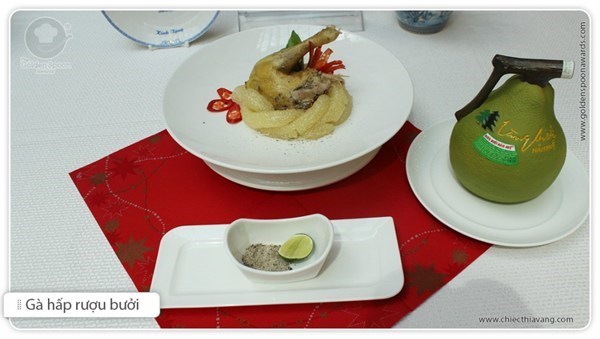If the nerves for taste only had the function of tasting the food, it will be a waste of the multiple functions of the tongue. Before modern science, Chinese medicine physicians have, for thousands of years, known the principles of “ taste generate energy”. This consists of 5 basic tastes: sweet, bitter, spicy, sour and salty. These in turn create specific energy for liver, kidney, heart, lung and intestinal function.

Because of this, many Chinese medicines have their unique tastes. For instance, some of them are a little bitter or spicy to stimulate nerves on the surface of the tongue, leading to the central nervous system and related to specific problems. Each person will have different reaction or adjustment of functional disorder which will speed up the recovery process of the damaged function.
It would be wrong to think that “taste generated energy” only works in medicine. The effects of “taste generated energy” in practice, is clearer when it is applied in cuisine. For instance a hot bowl of porridge which can resolve the flu won’t work if we don’t add pepper, perilla, green onion and ginger even we did double or triple the amount of meat. This is also the reason why a bowl of sour soup should have its sourness, but still has to keep the sweetness in order that it won’t cause stomach ache. It would be not good if a sour soup but it may have a bland flavor because the chef lacks experience.
It would be wrong to think that “taste generated energy” only works in traditional medicine. With scientific experiments physicians have known for long time that the feeling of satisfaction when you have a good appetizer, will be a stimulator to the pituitary gland, to release hormones that have the effect of an analgesic, blood thinner or anti-vascular spasm in which serotonin and endorphin are at the top. These hormones cannot be missed if you want to sleep well and wake up to enjoy the feeling of love (love of other people, love of yourself and lovingyour life).
People that have good appetites will be protected from many diseases such as heart attacks or strokes. In contrast, loss of appetite will become a stimulator for the body to synthesize adrenalin and dopamine hormones, which generate thoughts of greed, frustration and hatred. People that often finish a dish in a bad mood will have a high risk of high blood pressure, diabetes, neurasthenia, impotence and loss of sex drive.
Furthermore, neurological research has proved that those tastes that are at anextreme level such as too much spice, sweetness, bitterness or salt, will put a burning sensation on your tongue and won’t be good for your health. Taste stimulation only works as a medicine if all the tastes can be combined harmoniously. This is the reason why our delicious sweet soup, normally cooked with coconut milk to keep the sweetness, remained longer thanks to the fat of the coconut milk, as in the style of people of Ben Tre province.
The satisfaction that follows a good meal makes diners feel that the quality of life is in their hands, something that has been done for thousands of years. It is said “eat well and sleep well and you are already in heaven”. With the unique flavor of our foods we can modify it thus: “To be able to sleep well you must be able to eat well. When you can sleep well you are already finding heaven on earth”
Doctor Hoang Le Luong
Extracted from articles about Medicines in Vietnam Cuisine dedicated only to the 2014 Golden Spoon Contest)